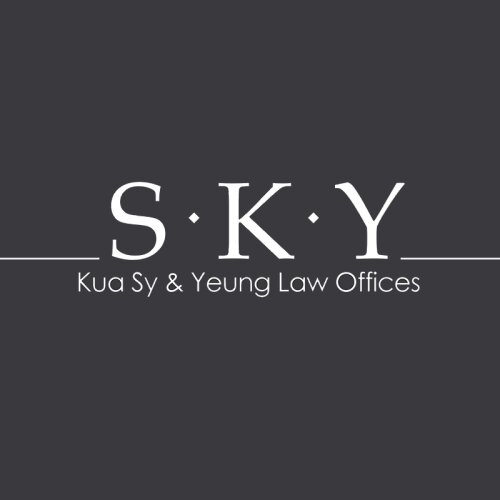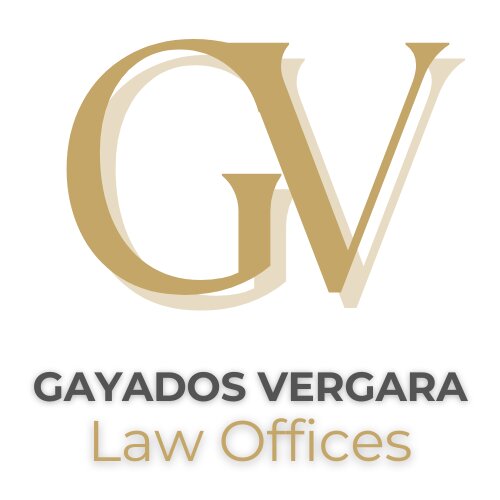Best Renewable & Alternative Energy Lawyers in Philippines
Share your needs with us, get contacted by law firms.
Free. Takes 2 min.
Or refine your search by selecting a city:
List of the best lawyers in Philippines
About Renewable & Alternative Energy Law in Philippines
Renewable and alternative energy law in the Philippines refers to the legal framework regulating the development, use, and management of energy sources such as solar, wind, hydro, geothermal, and biomass. The Philippines is rich in renewable energy resources and the government has made significant efforts to promote the use of clean energy to address energy security, sustainability, and environmental challenges. The key legislation is the Renewable Energy Act of 2008 (Republic Act No. 9513), which aims to accelerate the exploration and development of renewable energy resources, increase their utilization, and reduce the country's dependence on fossil fuels. This law provides incentives, establishes regulatory mechanisms, and outlines processes that individuals, companies, and local government units must follow to participate in the renewable energy sector.
Why You May Need a Lawyer
Legal complexities can arise when dealing with renewable and alternative energy projects in the Philippines. Here are some common situations where legal help may be necessary:
- Navigating the regulatory approval process for starting an energy project
- Securing and maintaining necessary permits and licenses
- Drafting and negotiating contracts with suppliers, government agencies, or partners
- Understanding and applying for legal incentives or government subsidies
- Managing compliance with environmental, land use, and safety standards
- Resolving disputes related to property rights, tariffs, or interconnection agreements
- Advising on tax implications and other financial matters linked to renewable energy investments
- Assisting with issues on foreign ownership and participation in energy projects
Local Laws Overview
Several laws and government policies directly impact renewable and alternative energy development in the Philippines. The principal law is the Renewable Energy Act of 2008, which promotes the use of renewable resources through financial incentives such as income tax holidays, duty-free import of renewable energy equipment, and the Green Energy Option program, allowing end-users to choose their energy source. In addition, the Energy Efficiency and Conservation Act (Republic Act No. 11285) encourages efficient energy use. Regulations from the Department of Energy (DOE), the Energy Regulatory Commission (ERC), and the National Renewable Energy Board (NREB) also shape the sector. Local government codes and environmental regulations, including those from the Department of Environment and Natural Resources (DENR), play crucial roles in permitting and compliance processes.
Frequently Asked Questions
What is considered renewable energy in the Philippines?
Renewable energy includes energy derived from natural processes that are replenished constantly, such as solar, wind, hydro, ocean, geothermal, and biomass energy.
What incentives are available for renewable energy investments?
The government offers various incentives such as income tax holidays, duty-free importation of equipment, VAT zero-rating on renewable energy sales, and tax credits on domestic capital equipment and services.
Do I need a permit to build a solar or wind project?
Yes, multiple permits are required, including service contracts with the Department of Energy, environmental clearances from the DENR, building permits, and local government approvals.
Can foreign investors participate in renewable energy projects?
Foreign ownership is allowed in certain renewable energy projects but may be limited for resources classified under the exploration of natural resources, in accordance with constitutional and statutory restrictions.
What is net metering?
Net metering allows qualified end-users to install renewable energy systems and sell excess electricity generated back to the grid, offsetting electricity costs.
How do I apply for incentives under the Renewable Energy Act?
Applications generally start with the Department of Energy, followed by compliance with the Bureau of Internal Revenue and other involved agencies for the specific incentives.
What government agencies regulate renewable energy?
The Department of Energy, Energy Regulatory Commission, National Renewable Energy Board, and the Department of Environment and Natural Resources are the primary agencies involved.
Are there specific environmental regulations for renewable energy?
Yes, all renewable energy projects must secure environmental compliance certificates from the DENR and conduct environmental impact assessments if required by law.
What are the common legal challenges in renewable energy projects?
Challenges include land acquisition and rights, compliance with multiple regulations, contract disputes, and issues related to grid connection and power purchasing agreements.
How can I protect my intellectual property in renewable energy technology?
You can apply for patents, trademarks, or copyrights with the Intellectual Property Office of the Philippines to protect original inventions or processes related to renewable energy.
Additional Resources
Individuals seeking more information can turn to the following governmental bodies and organizations:
- Department of Energy (DOE) - leads policy, regulation, and promotion of renewable energy
- Energy Regulatory Commission (ERC) - regulates electric power industry and enforces standards
- National Renewable Energy Board (NREB) - recommends policies and monitors implementation of the Renewable Energy Act
- Department of Environment and Natural Resources (DENR) - manages environmental regulations and permits
- Intellectual Property Office of the Philippines (IPOPHL) - protects intellectual property in related technologies
- Philippine Solar and Storage Energy Alliance (PSSEA) - a private sector group promoting solar energy
- Center for Renewable Energy and Sustainable Technology (CREST) - provides research and technical guidance
Next Steps
If you need legal assistance related to renewable and alternative energy in the Philippines, start by identifying your primary concern, such as permits, incentives, or dispute resolution. Gather all relevant documents and information about your project or inquiry. Contact a lawyer who specializes in energy law or a reputable firm with experience in renewable energy projects. Prepare your questions and objectives in advance for an efficient consultation. You may also consult with government agencies for preliminary guidance, but securing professional legal advice ensures compliance, minimizes risk, and helps maximize the benefits provided by Philippine laws on renewable and alternative energy.
Lawzana helps you find the best lawyers and law firms in Philippines through a curated and pre-screened list of qualified legal professionals. Our platform offers rankings and detailed profiles of attorneys and law firms, allowing you to compare based on practice areas, including Renewable & Alternative Energy, experience, and client feedback.
Each profile includes a description of the firm's areas of practice, client reviews, team members and partners, year of establishment, spoken languages, office locations, contact information, social media presence, and any published articles or resources. Most firms on our platform speak English and are experienced in both local and international legal matters.
Get a quote from top-rated law firms in Philippines — quickly, securely, and without unnecessary hassle.
Disclaimer:
The information provided on this page is for general informational purposes only and does not constitute legal advice. While we strive to ensure the accuracy and relevance of the content, legal information may change over time, and interpretations of the law can vary. You should always consult with a qualified legal professional for advice specific to your situation.
We disclaim all liability for actions taken or not taken based on the content of this page. If you believe any information is incorrect or outdated, please contact us, and we will review and update it where appropriate.
Browse renewable & alternative energy law firms by city in Philippines
Refine your search by selecting a city.
















